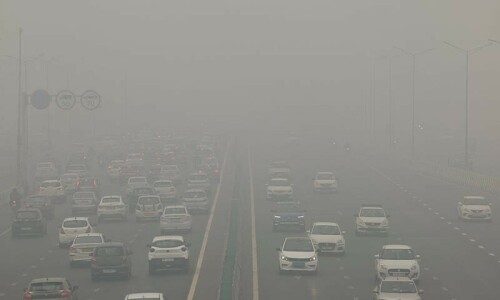VICTIMISATION of opponents is found — in varying degrees — in politics all over the world, and the politics of South Asia are not immune to this. Mudslinging, name-calling and media trials are all par for the course, while those in power often use the tools at their disposal to belittle their opponents and neutralise them politically. We in Pakistan are no strangers to such unsavoury behaviour, while similar is the case next door in India. But in the Bangladeshi context, the government of Prime Minister Sheikh Hasina Wajed seems to have surpassed all in the quest to decimate the political opposition in that country. As reported, a Bangladeshi court has sentenced nine individuals to death for attacking a train carrying Sheikh Hasina in an incident that occurred 25 years ago. A number of others have been given life terms for the act; all belong to the opposition Bangladesh Nationalist Party. In fact, BNP head and the prime minister’s arch nemesis Khaleda Zia herself is in jail on corruption charges her supporters say are cooked up. This is not the first time Shaikh Hasina has displayed a thirst for revenge. After coming to power in 2009, she set up the International Crimes Tribunal to look into ‘war crimes’ committed during the events of 1971 that led to the creation of Bangladesh. Several opposition leaders belonging to the Bangladeshi chapter of Jamaat-i-Islami were executed by the tribunal, even though a number of reputed human rights groups and experts cast doubt over the fairness of the trials.
By attempting to wipe out all opposition to the ruling Awami League, Sheikh Hasina is laying the groundwork for one-party rule. This does not bode well for Bangladeshi democracy. Much like Pakistan, Bangladesh has also grappled with authoritarian rule; Mujibur Rehman quickly went from hero to strongman while in the post-Mujib era the country saw a long bout of military rule before the return to democracy. Therefore, the government in Dhaka must refrain from using tactics that add to internal turmoil and thwart the democratic process. Bangladesh needs to come to terms with its history. While those who break the law must be punished, there is a clear line dividing the dispensation of justice and a thirst for revenge. Unfortunately in today’s Bangladesh, it is the latter which appears to dominate, which is why a more moderate course should be adopted by the ruling party in Dhaka.
Published in Dawn, July 6th, 2019











































